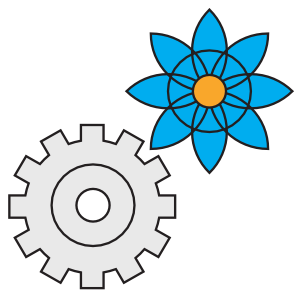Blue Engineering

Dies ist die neue Blue Engineering Webseite – wir sind derzeit dabei, alle Inhalte der alten Webseite umzuziehen. Derzeit steht nur ein erster Teil – unser digitaler Baukasten – hier auf der neuen Webseite zur Verfügung. Nach und nach werden auch alle weiteren Inhalte übertragen. Bis dahin kann die bisherige Webseite weiterhin unter folgendem Link aufgerufen werden: http://blue-eng.km.tu-berlin.de/index.php/Hauptseite
Wir bitten um etwas Geduld – und freuen uns, bald die vollständig überarbeitete Seite präsentieren zu können!
Vom 12. bis 13. Juni 2025 fand an der Technischen Hochschule Nürnberg Georg Simon Ohm die 3. I-BNE-Konferenz – Interdisziplinäre Bildung für nachhaltige Entwicklung – statt. Ziel der Tagung war es, Potenziale und Herausforderungen einer Bildung für nachhaltige Entwicklung anhand konkreter Praxisbeispiele sichtbar zu machen. Im Zentrum stand diesmal das Zusammenspiel von Interdisziplinarität und Interkulturalität in der Hochschullehre.
Vom 19. bis 21. März 2025 hieß es an der Hochschule Fulda wieder: Manege frei! Für seinen vierten Auftritt fand der Wanderzirkus hier einen neuen Spielplatz – Halle 8 wurde zum Zirkuszelt, zum Denkraum und zum Karneval der Ideen zugleich. 20 neue Mitreisende aus Bildung, Demokratie und Nachhaltigkeit schlossen sich dem bunten Ensemble an, darunter auch eine Stimme aus dem Blue Engineering-Team der TU Berlin.
Vom 30. September bis zum 21. November 2024 machte der Werkzeugkasten RAD AB, SCHRAUBE LOCKER an der Hochschule Niederrhein – genauer gesagt in der Bibliothek am Standort Krefeld. In diesen sieben Wochen wurde die Bibliothek nicht nur ein Ort zum Lesen und Lernen, sondern auch ein Raum zum Staunen, Diskutieren und Infragestellen. Und das kam an: Über 15.000 Besucher_innen nutzten das Angebot – ein Plus von rund 30 Prozent gegenüber dem üblichen Publikumsstrom.
Am 22. Juni 2024 öffnete das Fachgebiet Konstruktion von Maschinensystemen – an das Blue Engineering an der TU Berlin angedockt ist – sein rotes Tor weit für die Lange Nacht der Wissenschaften. Gemeinsam mit anderen Fachgebieten verwandelte sich das Labor für Maschinensysteme vom Nachmittag bis spät in die Nacht in ein „Haus der Maschinen“, um zu zeigen, was Lehre und Forschung hier bewegen.Als Blue Engineering-Team präsentierten wir unseren Werkzeugkasten RAD AB, SCHRAUBE LOCKER,
Vom 28. bis 30. Oktober 2024 machte der Wanderzirkus zum dritten Mal Station – diesmal im besten Saal der Universität Göttingen. Die Veranstaltung bringt Lehrende, Lernende und Bildungsaktivist_innen aus unterschiedlichen Hochschulen zusammen, um gemeinsam neue Wege einer demokratischen und kritisch-nachhaltigen Hochschullehre zu erkunden. Auch ein Mitglied aus dem Blue Engineering-Team war mit dabei und brachte Perspektiven aus dem Berliner Seminar in das Spannunsgfeld von Ernst und Magie ein.
Von März bis Juni 2024 wurde der RAD AB, SCHRAUBE LOCKER Werkzeugkasten an der Hochschule Bonn-Rhein-Sieg (H-BRS) aufgestellt. Möglich wurde dies durch die Kooperation mit dem Zentrum für Ethik und Verantwortung (ZEV) und der Hochschulbibliothek, die beide Standorte – Sankt Augustin und Rheinbach – zur Verfügung stellte. Ein vielfältiges Begleitprogramm mit Führungen, Lesungen, Diskussionen und einem Blue Engineers-Seminar brachte die Themen Ethik, Verantwortung und Technikgestaltung ins Gespräch und lud Studierende wie Besucher_innen ein, über Gesellschaft, Technik und das eigene Handeln nachzudenken.
Die SEFI Annual Conference 2024 fand vom 2. bis 5. September an der EPFL in Lausanne statt und widmete sich der Frage, wie Ingenieur_innen ausgebildet werden können, um mit technischer Exzellenz zugleich gesellschaftliche und ökologische Verantwortung zu übernehmen. Unter dem Leitthema Educating Responsible Engineers diskutierten Teilnehmende aus ganz Europa, wie die Ingenieurausbildung einen Beitrag zu einer sozial und ökologisch nachhaltigen Gesellschaft leisten kann – gerade vor dem Hintergrund, dass Technik nicht nur Lösungen bietet, sondern oft auch Teil komplexer Probleme ist. Ein Dozierender des Blue Engineering Seminars an der TU Berlin nahm an der Konferenz teil und nutzte die Gelegenheit für einen intensiven Austausch mit Kolleg_innen aus Lehre und Forschung.
Vom 10. bis 12. April 2024 fand an der Technischen Universität Berlin die SEFI Spring School zum Thema Democracy in Engineering Education statt. Die Spring School wurde erstmals gemeinsam von den beiden SEFI Special Interest Groups für Ethik und Nachhaltigkeit organisiert und griff die provokante Leitfrage auf: „Brauchen wir Ethik oder Nachhaltigkeit in der Ingenieurausbildung – und wie treffen wir diese Entscheidung?“ Inspiriert vom Kinderbuch „Kroko oder Krake? Du musst dich entscheiden!“ stellte die Veranstaltung spielerisch und zugleich ernsthaft die Frage nach Wahlfreiheit, Verantwortung und Mitgestaltung in der technischen Bildung. Einer der Blue Engineering-Dozierenden wirkte aktiv mit, tauschte sich mit den Teilnehmenden aus und brachte Perspektiven aus dem Berliner Seminar ein.
Die Jahreskonferenzen von SEFI – der europäischen Gesellschaft für Ingenieurausbildung – sind die bedeutendsten Fachtagungen zu diesem Thema in Europa. Im Jahr 2023 fand die Konferenz unter dem Titel Engineering Education for Sustainability an der TU Dublin vom 11. bis 14. September statt und bot ein breites Forum für den Austausch zu Fragen nachhaltiger Technikgestaltung, ethischer Verantwortung und innovativer Lehrformate. Zwei Dozierende aus dem Blue Engineering-Team der TU Berlin waren vor Ort, präsentierten den RAD AB, SCHRAUBE LOCKER Werkzeugkasten durch das Paper Screw Loose Toolbox.








